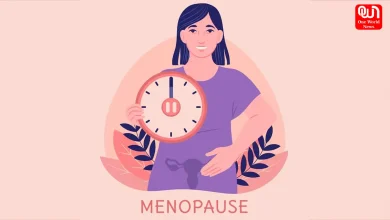Heart attack considerably raises risk of other health issues: Research
New research from the University of Leeds reveals that surviving a heart attack significantly raises the risk of long-term health disorders, including mental health issues. Socioeconomic factors also play a role.
Unveiling the Long-term Health Impact: Heart Attacks Heighten Risk of Serious Health Disorders

A groundbreaking study conducted by researchers at the University of Leeds has revealed that experiencing a heart attack significantly increases the likelihood of developing severe long-term health disorders. The study, encompassing over 145 million records spanning nine years, delves into the extensive ramifications of heart attacks on patients’ health, shedding light on the alarming risks they face even after surviving the initial cardiac event.
The Scope of the Study: This unprecedented research project, supported by The British Heart Foundation and Wellcome, scrutinized records from every adult patient admitted to 229 NHS Trusts in England between 2008 and 2017. With a staggering 433,361 reports of first-time heart attacks, the study aimed to provide a comprehensive understanding of the long-term health outcomes associated with this prevalent cardiac condition.
Widespread Implications: Contrary to the common misconception that survival indicates a full recovery, the study discloses that individuals who have suffered a heart attack are at a considerably higher risk of developing various health issues. Up to a third of patients were found to develop heart or kidney failure, with 7% experiencing recurrent heart attacks, and a staggering 38% succumbing to any cause within the nine-year study period.
Read more: Tantrum taming: 20 parenting strategies for dealing with toddler meltdowns
Disparities Based on Socioeconomic Factors: The research further identifies a concerning trend – individuals from socioeconomically deprived backgrounds are more likely to face fatal outcomes or serious health conditions post-heart attack. Specifically, those from disadvantaged backgrounds showed a higher propensity for heart and kidney failure compared to their counterparts from more affluent backgrounds.

Individualized Care Plans and Informed Decision Making: Dr. Marlous Hall, the lead author of the study, emphasizes the need for tailored care plans, taking into account the heightened demand for care caused by post-heart attack survivorship. Providing accessible online information about the risks associated with specific age, sex, and socioeconomic groups can empower individuals to make informed decisions about their healthcare in collaboration with their doctors.
Key Health Outcomes: The research outlined a significant increase in the risk of developing various conditions following a heart attack. Notably, heart failure, kidney failure, atrial fibrillation, and new hospitalization for diabetes were more prevalent in the study group compared to the control group. Depression, a mental health condition, was also more likely to occur following a heart attack, particularly in women under the age of 40.
Gender Disparities in Mental Health Outcomes: An intriguing finding of the study is the gender disparity in mental health outcomes. Women, especially those under 40 at the time of their heart attack, were more prone to developing depression compared to men. This insight underscores the importance of considering gender-specific factors in post-heart attack mental health care.
Read more: Can you die from a broken heart?
Cancer Rates and Unexplored Factors: Surprisingly, the study found a lower overall risk of cancer in the study group compared to the control group. While 13.5% of heart attack survivors developed cancer, this was significantly lower than the 21.5% observed in the control group. Researchers acknowledge the need for further investigation into the specific reasons behind this unexpected finding.
We’re now on WhatsApp. Click to join.
Conclusion: As survival rates post-heart attack continue to improve, this comprehensive study offers invaluable insights into the complex web of long-term health outcomes. It advocates for a paradigm shift in healthcare, emphasizing the necessity of individualized care plans, improved communication between patients and healthcare professionals, and increased support for those at higher risk, particularly those from disadvantaged backgrounds. Ultimately, understanding the broader health impact of heart attacks is crucial for shaping effective strategies to ensure patients’ well-being beyond the initial cardiac event.
Like this post?
Register at One World News to never miss out on videos, celeb interviews, and best reads.








